- For developers
- Industry insights
- People in tech
- 26 May 2025
Top In-Demand Software Engineering Skills in 2025
In 2025, the demand for top software engineering skills is extremely high.
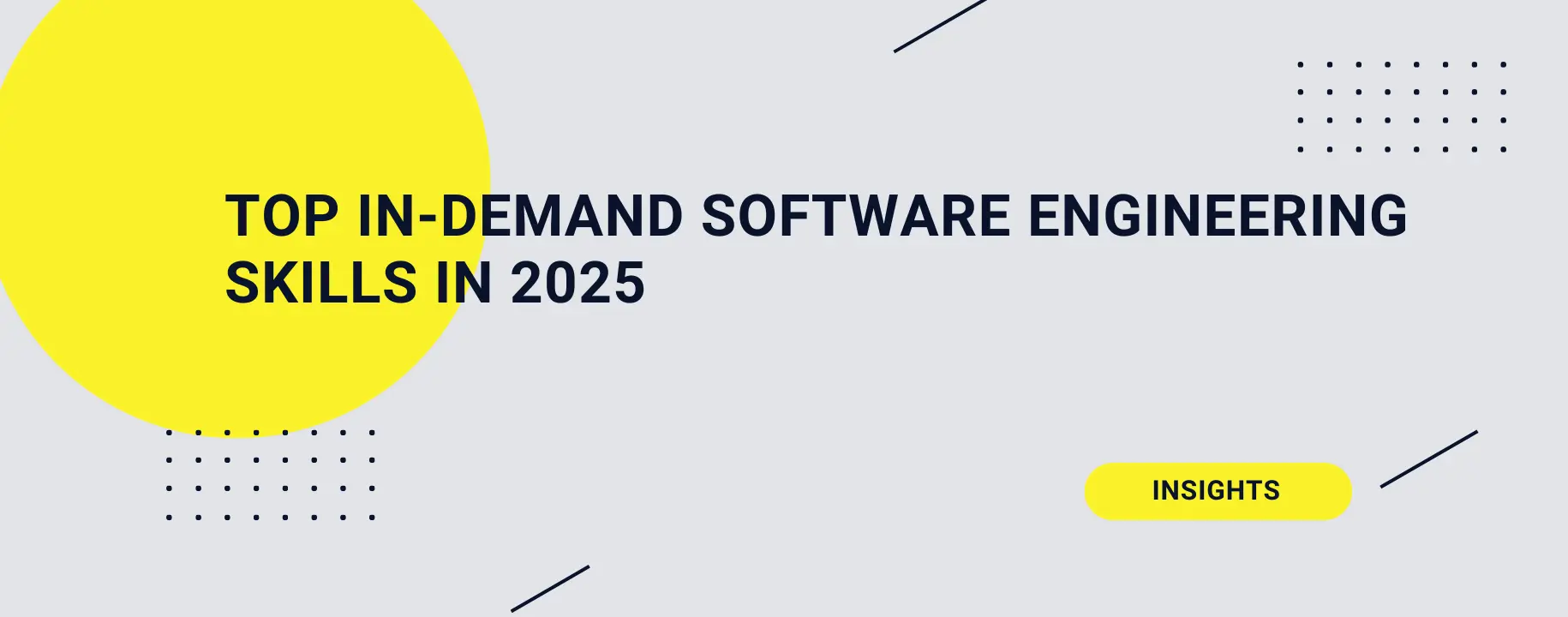
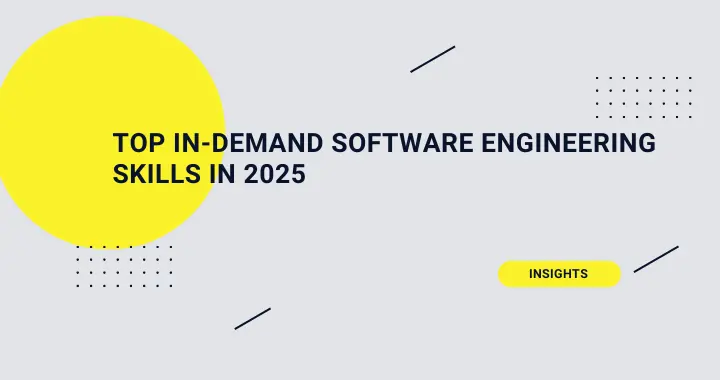
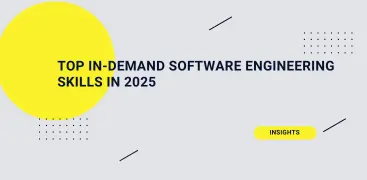
Table of contents
- Why are software skills rapidly evolving?
- 1. Cloud & DevOps Engineering
- 2. AI & Machine Learning Fundamentals
- 3. Full-Stack Development (JS Frameworks Dominate)
- 4. Backend Scalability & API Design
- 5. Cybersecurity awareness (not just for security teams)
- 6. Testing & QA Automation
- 7. Agile methodologies & collaboration tools
- Final thoughts: becoming a future-proof developer
Contributors

We live in a time when software engineers must keep up with rapidly evolving technology. In turn, businesses must integrate this technology and ensure that their teams are ready to work with it.
A prime example is the rise of artificial intelligence. According to Exploding Topics, only 20% of companies were using AI in at least one business function in 2017. By 2025, the percentage has reached 78%!
Therefore, if you’re in tech, you need AI developer skills, as well as other in-demand tech skills that we are going to discuss in today’s article.
Why are software skills rapidly evolving?
In 2025, the demand for top software engineering skills is extremely high in Europe, especially in sectors related to artificial intelligence & machine learning, cybersecurity, and cloud computing.
Studies indicate that the demand for machine learning skills is expected to grow by 383% by the end of 2025 (acework.io). Now that’s a number! In the following sections, we’ll take a closer look at each IT sector individually.
1. Cloud & DevOps Engineering
What’s in high demand when it comes to cloud & DevOps engineering? Skills like configuring CI/CD pipelines, using Infrastructure as Code (IaC), and developing serverless applications are among the most sought-after in this IT sector. Cloud-first architectures dominate the tech landscape because they enable companies to be faster, more flexible, and more cost-efficient.
As a result, the following technologies are no longer considered “nice to have” in job descriptions—they’re a must-have: AWS, Azure, Docker, Terraform, and Kubernetes.
Thinking of launching your own cloud-based solution? SaaS development services can help turn your idea into a successful product!
2. AI & Machine Learning Fundamentals
Languages and libraries such as Python, TensorFlow, PyTorch, NLP, and even new generative AI tools are present in more and more applications – from chatbots and predictive analytics to complex automation functions.
By 2025, even non-AI developers will need to integrate intelligent APIs or optimize code to support machine learning models.
Learn more about NLP (natural language processing) in AI in our article here.
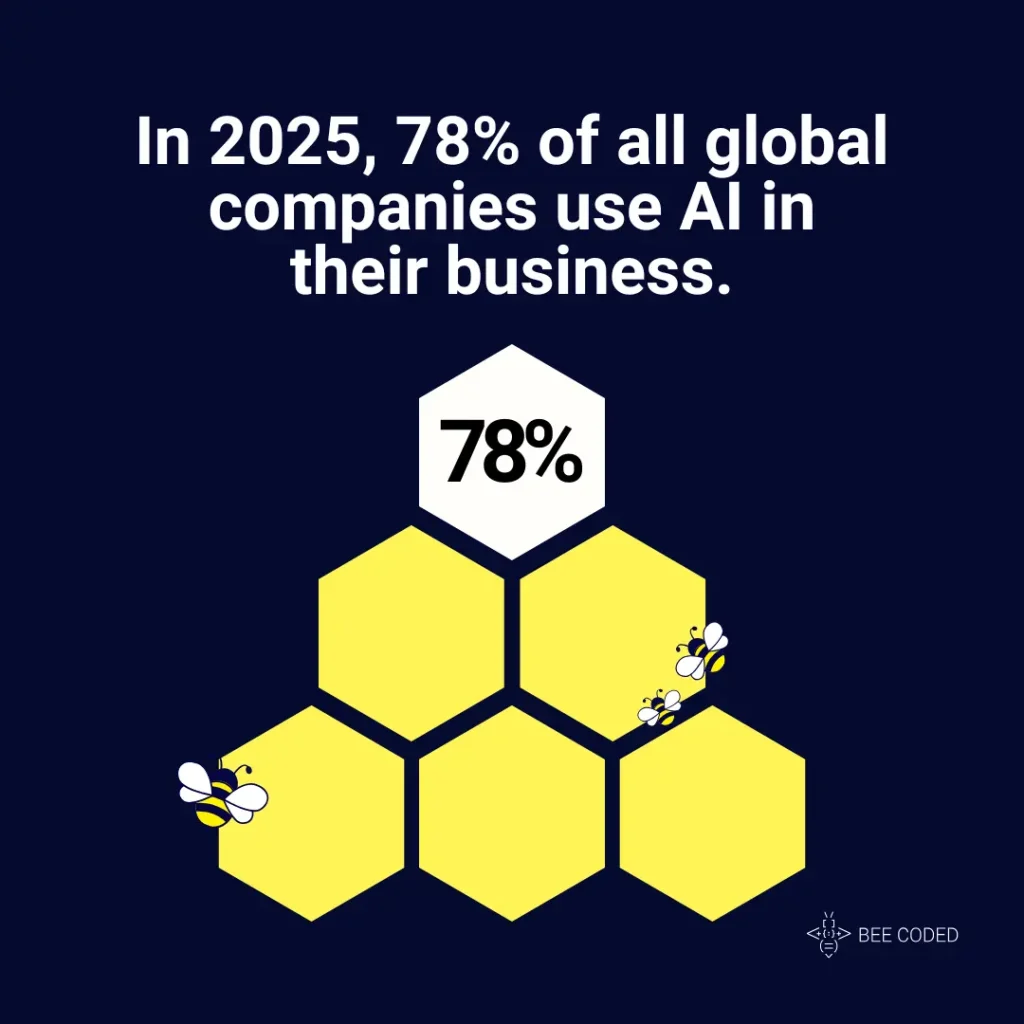
3. Full-Stack Development (JS Frameworks Dominate)
Full-stack developers need to refine both their backend and frontend skills and deliver mobile-friendly products based on API-first principles.
At the same time, concepts such as reusable components (modular UI elements that can be used across multiple parts of an application) and micro frontends (an architecture where the frontend is split into smaller, independently deployable pieces) are becoming increasingly common.
Last but not least, there is an increasing demand for modern frameworks such as React, Next.js, Node.js, and TypeScript.
4. Backend Scalability & API Design
Languages like Python, Go, Node.js, and Java (with Spring Boot) remain top choices for backend architecture.
Python, for example, is the leading backend programming language in 2025. What makes it so popular is the combination of intuitive syntax and a powerful ecosystem (webandcrafts.com).
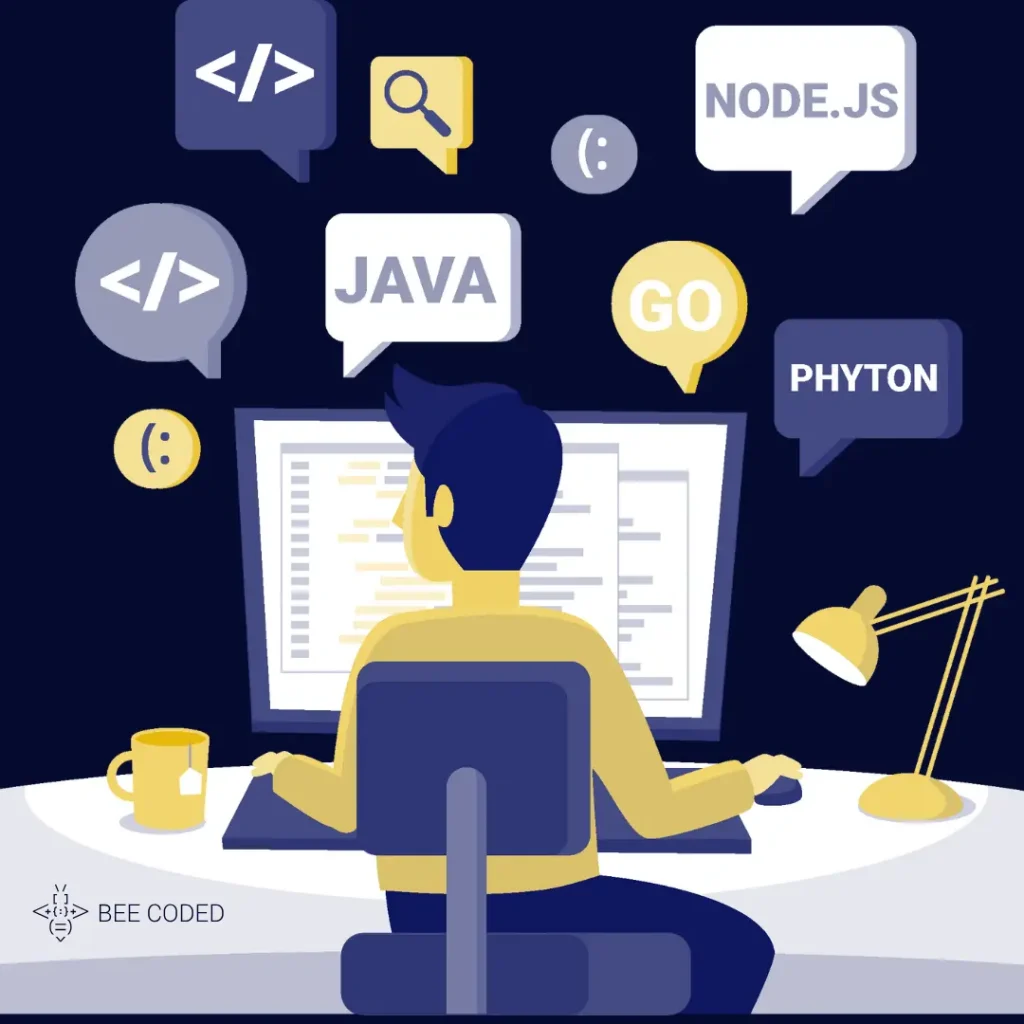
5. Cybersecurity awareness (not just for security teams)
Security remains an important factor in software development. And when we talk about security, we don’t just mean the cybersecurity team.
Nowadays, even if you’re a FE developer or a BE developer, you need to know the OWASP Top 10, encryption best practices, and secure coding principles.
Vulnerabilities can be introduced at any stage of development. That’s why every developer, regardless of their role, needs to code with security in mind.
6. Testing & QA Automation
In 2025, there is a growing emphasis on automated testing.
Engineers who are skilled in tools like Jest, Cypress, and Playwright, as well as testing frameworks integrated into modern ecosystems (such as React, Angular, and Spring) are increasingly in demand.
Global spending on automated testing tools has risen by nearly 30% in the past year, showing that more and more companies are recognizing the benefits of automation: fewer bugs and faster time to market (loadfocus.com).
7. Agile methodologies & collaboration tools
The main reasons why organizations adopt Agile are to focus on delivering what’s most valuable for the business and to speed up the launch of products or services (notta.ai).
In addition, companies value developers who know how to document well, communicate effectively, and deliver consistently, following Agile principles. In terms of collaboration tools, Jira and Notion are among the most widely used.
Final thoughts: becoming a future-proof developer
No one needs to master everything, but staying informed about software engineering trends and adopting what fits your needs can be a real advantage.
Stay open to continuous learning. Experiment. Explore.
And if you’re a company looking for technical teams already trained in today’s most in-demand software engineering skills, let’s connect.
Contact us today — we’d love to chat!
Ethical Challenges in Building AI-Driven SaaS Products in 2025
Top 10 SaaS Trends That Dominate in 2025 and How to Adapt
How Finance Teams Save $100K Annually Through Smart Automation